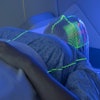The American Society for Radiation Oncology (ASTRO) is applauding the introduction of the Promoting Integrity in Medicare Act of 2019 (PIMA), a new bill in the U.S. Congress that would eliminate the in-office exemption for four services -- including advanced imaging and radiation therapy -- from anti-self-referral provisions of the Stark law.
The new legislation would restore the original intent of the Ethics in Patient Referrals Act -- also known as the original Stark law -- by closing the in-office ancillary services loophole that had created a pathway for physicians to avoid its prohibitions and intent, ASTRO said. It would prohibit self-referral for advanced imaging, anatomic pathology, radiation therapy, and physical therapy. In addition, PIMA would increase penalties for improper referrals, create new compliance review procedures involving Medicare and the U.S. Department of Health and Human Services' Office of the Inspector General, and strengthen provisions in the self-referral law that maintain access to care for rural beneficiaries, ASTRO said.
"Inappropriate self-referral undermines ASTRO-supported efforts to move Medicare toward quality- and value-based reimbursement," said ASTRO Chair Dr. Paul Harari in a statement. "Alternative payment models (APMs), for example, will not be successful if incentives remain for overutilization of medical services."
The bill (HR 2143) was introduced by Rep. Jackie Speier (D-CA) and Rep. Dina Titus (D-NV), and it marks Speier's fourth attempt at closing the in-office exception for ancillary services. She introduced similar bills in 2011, 2013, and 2016.



















